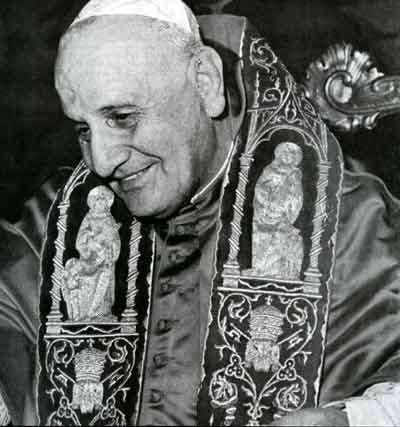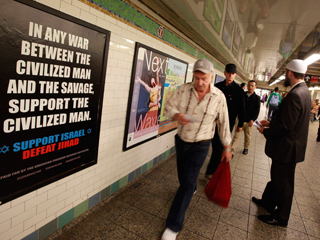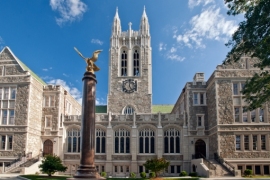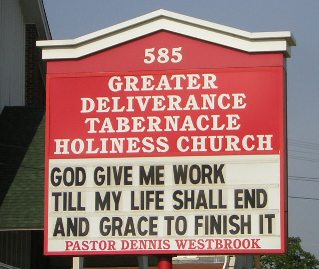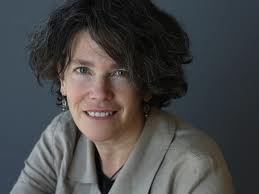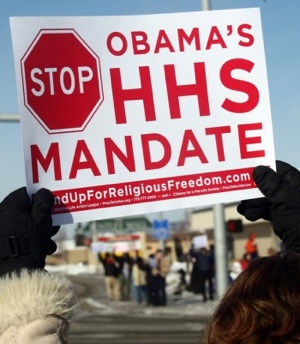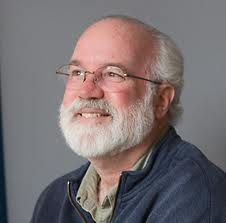While an enormous mass of people still lacks the absolute necessities of life, some, even in less advanced countries, live sumptuously or squander wealth. While the few enjoy very great freedom of choice, the many are deprived of almost all possibilities of acting on their own initiative and responsibility, and often subsist in living and working conditions unworthy of human beings.
Hearing those words, you might think they were delivered by the likes of Iranian president Mahmoud Ahmadinejad, perhaps in his address to the United Nations General Assembly last month. Or they may sound like something out of the Frankfurt Declaration, the principles articulated in 1951 (and updated in 1989) by the Socialist International. But you’d have to go looking farther to the right to find the people behind the “many are deprived” statement.
Proper attribution actually belongs to the Second Vatican Council—which was called to order 50 years ago, on October 11, 1962, in Rome. The world’s Roman Catholic bishops made the observation in the signature document of Vatican II, Gaudium et Spes (“joy and hope” in Latin), also known as The Pastoral Constitution on the Church in the Modern World. The declaration itself was released two years later, on the day the Council ended.
In calling attention to extreme economic inequality, the fathers of the Council were not tapping into the currents of romantic leftwing internationalism that began flowing around that time. They were channeling traditional wisdom, which is what religious social teaching does, at its best.
Part of that wisdom is to affirm the idea of a hierarchy of values. In other words, some things we may pursue, like wealth, are lower on this scale than other values, such as happiness and care for one’s neighbor. Some things we may prize as a society, like economic growth, are really just means toward other goals, including broadly shared prosperity. They aren’t ends in themselves, although they’re often passed off that way.
Why are so many of us moderns confused about this? I think the Council fathers nailed it when they explained, in Gaudium et Spes, that many people “seem to be hypnotized, as it were, by economics, so that almost their entire personal and social life is permeated with a certain economic outlook.” It’s the kind of trance that leads some to think that the inequalities named by the Council are necessary and just.
The Great Hypnotizers
Economists, of course, are the impresarios of this collective hypnosis. But the wisest of them—including some Nobel Prize winners—would have no quarrel with the men in Rome on this count.
From the moderate left, there’s Nobel laureate Amartya Sen. In his 2000 collection Development as Freedom, Sen drew on Aristotle’s understanding of wealth as “merely useful and for the sake of something else,” and he submitted that the “something else” is human self-realization (including full participation in society). That’s a non-economic value.
From the moderate right, there’s Nobel laureate Robert William Fogel, whose starting point is the question asked by Socrates: What is the good life? He too speaks of self-realization, defined as the achievement of a moral and satisfying life (in his 2002 book The Fourth Great Awakening and the Future of Egalitarianism).
Sen and Fogel are rare, though. As a whole their profession lacks a teleological view, a sense of ultimate purposes beyond the flow of goods and services. In the absence of that, what we often see are “means parading as ends,” in the words of the iconoclastic economist E.F. Schumacher. This isn’t purely theoretical. In the past decade, the parade passed through debates over global labor and environmental standards, for example. Foes of these measures often complained that such protections would interfere with free trade (a means often mistaken for an end).
It’s all part of the hypnosis, which leads some people to contend that the “losers” in our economy are just that, losers. After all, what else is there to say about people who don’t succeed according to the criteria of the marketplace? Or they’re branded as “takers,” because they might get unemployment insurance or other government benefits.
At Vatican II, the bishops exposed this presumption, under the heading of inequality.
“The development of economic life could diminish social inequalities if that development were guided and coordinated in a reasonable way. Yet all too often it serves only to intensify the inequalities,” they said, adding—“In some places it results in a decline in the social status of the weak and in contempt for the poor.”
More recently the contempt has been known to turn itself on roughly 47 percent of the people. …read more
